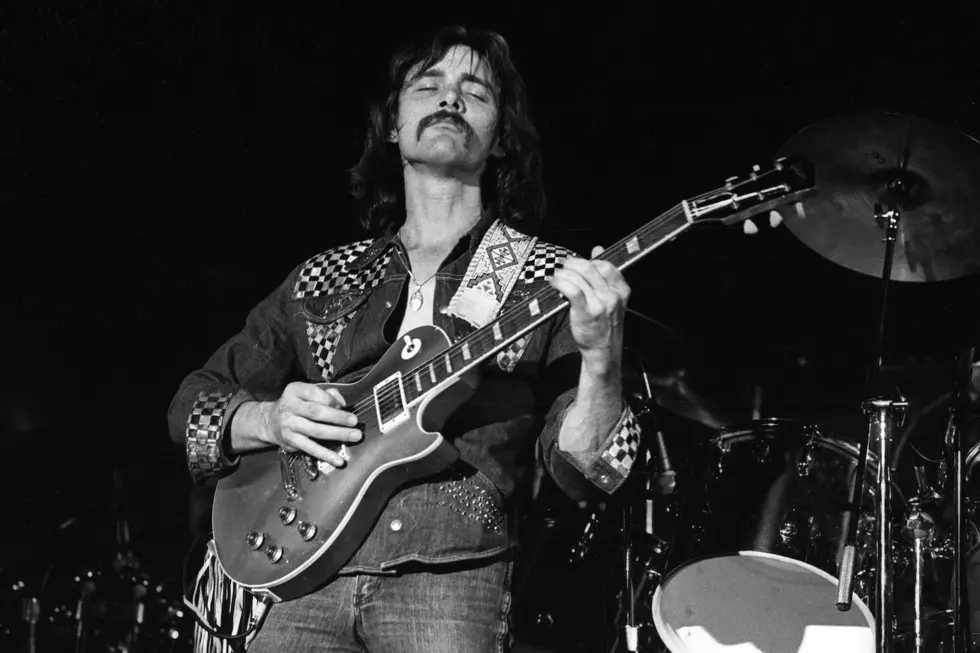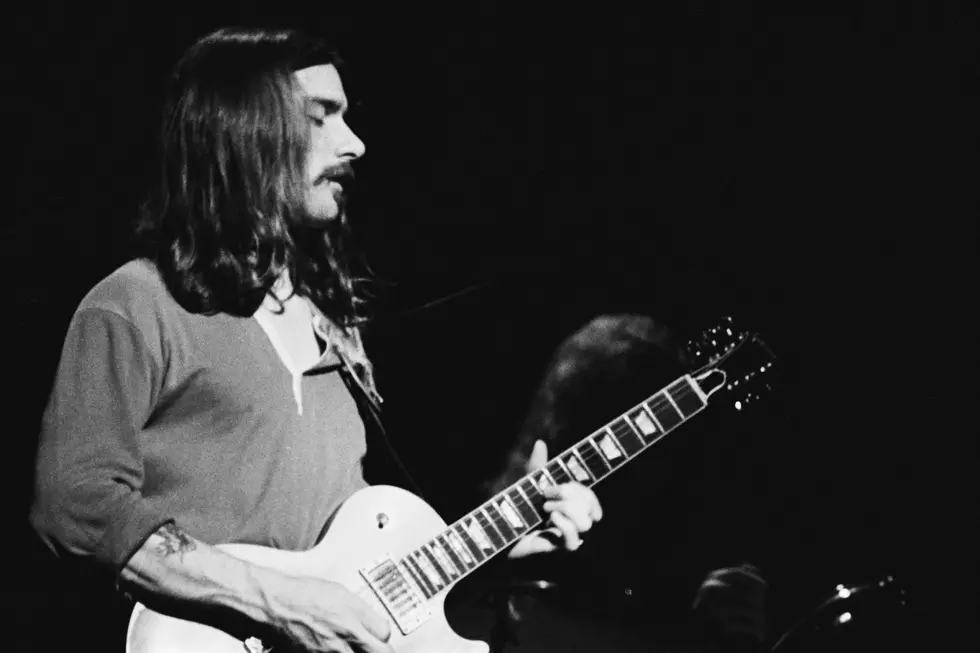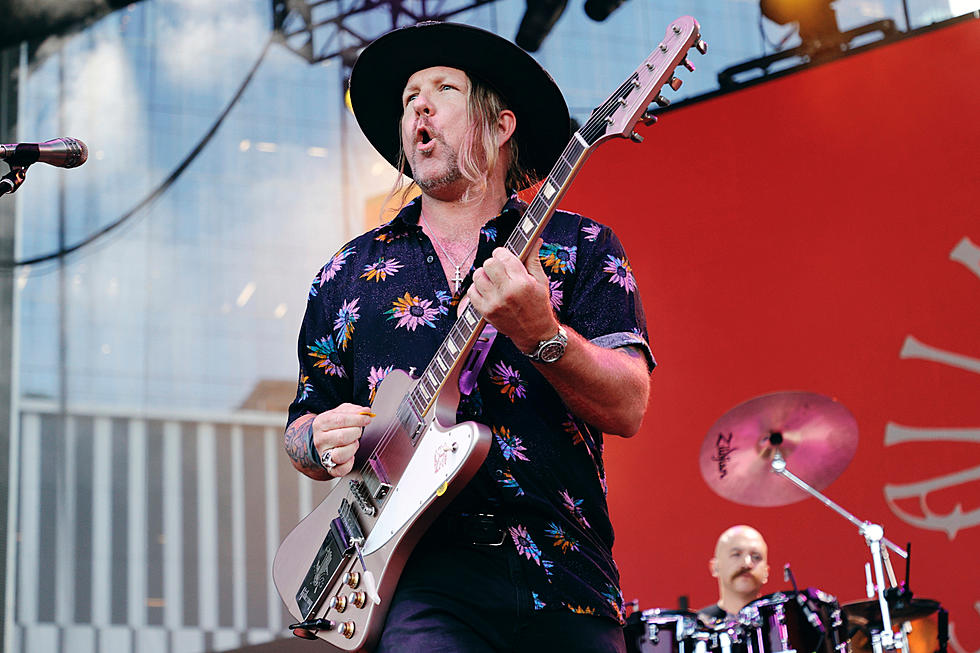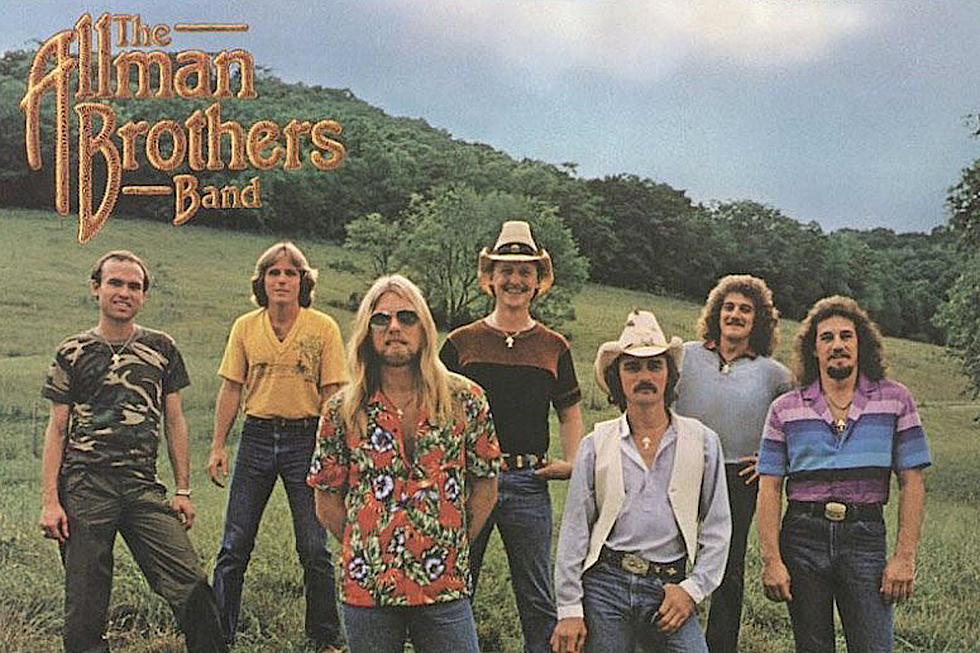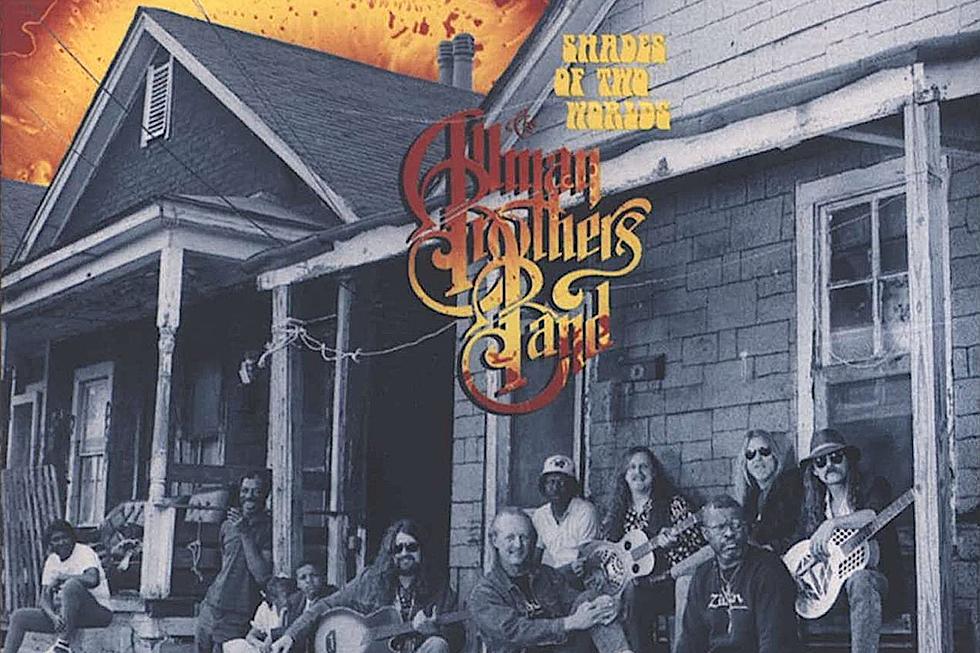
Jaimoe Plans Bright Futures for Allman Brothers Band and Jaimoe’s Jasssz Band
The Allman Brothers Band has survived breakups, bad blood and too many deaths. Over its 43-year history there has been a decade-long hiatus, a contentious split with founding member Dickey Betts and the loss of Duane Allman, Berry Oakley and Allen Woody. Through the good and the bad, Jaimoe has been pounding away at the skins alongside fellow drummer Butch Trucks.
Born Jai Johanny Johanson, the 67-year-old Jaimoe still loves to play. With the Allman Brothers taking a breather this summer (don’t worry -- there’s more to come from Southern rock’s greatest band), the drummer has fired up side project Jaimoe’s Jasssz Band and released a debut studio album, 'Renaissance Man.' From his adopted home of Connecticut, the Rock and Roll Hall of Famer spoke exclusively to Ultimate Classic Rock about his past, present and planned long future.
The Allman Brothers have only a couple of dates on the calendar. Is the band winding down or is this just a slow year?
The Allman Brothers aren’t busy because everybody except Butch Trucks has their own band right now. Everyone is out there making their own music, making their own records. When you are doing your own thing it re-energized you, brings you new energy you can bring back to the band.
You, Gregg Allman and Butch Trucks are all in your 60s. How long do you feel the Allmans can go on? Do you feel like you’re close to the end?
The older you get the better you get. The key is just keeping the body up with the mind. The mind keeps developing when the body is breaking down. But we’ll keep going. Other than us cutting an album, and I don't know that we need to cut an album, we’ve got plenty of music to make. The Allman Brothers have a long, long way to go.
And in the meantime, will we see the Jasssz Band on the road?
We did tour with Gregg in January opening up at his shows. It was great. We played every other night and got a great response. I love playing live with these guys. But touring costs money these days. What we need to do is make another record. We have four or five tunes in the can, real nice stuff. I’ve been telling Junior (Mack) he needs to write some more songs and we’ll be in business.
To take Jaimoe’s Jasssz Band to the next level it seemed you needed a great frontman. It looks like you’ve found one in singer/songwriter/guitarist Junior Mack. What has discovering Mack meant to your music?
I am the link that he needed and he is the link that I needed. I had this same band together without a singer or guitar player and we were playing bebop. I heard him and knew the whole sound would change with him on board.
The story is someone slipped his CD to you, you listened, liked it and called him up and asked him to join the band.
I called him up and said he needed to make another CD. (Laughs). As great as he was I knew he could do more. I told him, 'Do you know that you play differently from everybody else?' He said, 'No.' I told him, 'You don’t know that you sound different from Warren and Derek and everybody?' He repeated, 'No.' (Laughs). I told him to forget it and just keep doing what he was doing and not think about it, not change a thing.
At moments he sounds like Warren Haynes and Derek Trucks, and vocally he recalls Gregg Allman. What makes him so different as a player?
He's a walking history of music, and not just of rhythm and blues or soul or rock ‘n’ roll. We were doing this great song by Gregg, "Ain't Wastin Time No More" and I wanted it to transition into a John Coltrane tune. He was my worry in the band over doing it. How would he approach it? Could he handle it? I gave him the Coltrane song to listen to and he said, “Oh, yeah, this song. Someone gave me this record when I was 14.” He knew exactly how to play it and make it work.
The 10 tracks on 'Renaissance Man' run the gamut from classic soul and blues to swinging jazz to songs that could fit perfectly on an Allmans record. Even in the first tune, 'Dilemma,' you go from this big Southern rock jam to a cool jazz thing. How do you do that quickly, so effortlessly?
(Laughs) It's really not that hard to do. It's a matter of doing what you do. Not thinking, 'What can I do here?' But doing it.
Well, it feels hard.
(Laughs) When you’ve been doing something for this long, it’s second nature.
The horns -- Reggie Pittman, trumpet and flugelhorn; Paul Lieberman tenor and alto saxophone and flute, Kris Jensen tenor, baritone and soprano saxes -- add something completely new to the sound. Sometimes they sound like the West African music of Fela Kuti, then suddenly they are going back to your soul roots, to the days when you played drums for Otis Redding.
That was part of the reason I added horns, to get that soul sound I grew up playing and listening to. Horns really make a good band. They always create excitement when it’s needed. They give the music a broader spread. It doesn't have to be all guitars and keyboards all the time. (Laughs).
How do you make a CD like this so late in life but so full of fresh ideas?
Like I said, I do it because I'm doing it. Everyone is afraid to do what we're doing because they want a hit record, it's all they care about. Instead, of worrying if something will be a hit, bands need to go out and make good music, get a following, play live. That’s how you make a career these days.
More From Ultimate Classic Rock
